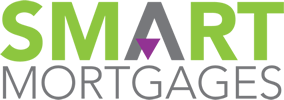Self-employed individuals in Ireland face unique challenges when pursuing homeownership. While the dream of owning property remains achievable, the mortgage application process differs significantly from that of salaried employees. Understanding these differences and preparing accordingly can substantially improve your chances of success.
Why It’s Different for Self-Employed Applicants
Income Verification Challenges
Unlike PAYE employees who can simply provide payslips, self-employed individuals must demonstrate income stability through multiple years of accounts. Irish lenders typically require at least 2 years of consistent trading history, with some preferring to see 3+ years of accounts. The income assessment is more complex, as lenders examine:
- Notice of Assessment
- Tax returns (Form 11)
- Certified accounts
- Business bank statements
- Revenue tax clearance certificates
- Debt in the business
Different Income Calculation Methods
Irish banks generally use one of two or three approaches when calculating a self-employed person’s income:
- Average income method: Taking the average of your last 2 years of income/ Directors remuneration
- Latest year method: Banks are starting to put a higher weight on the most recent year.
- Net Profit: Banks will also look at net profit of the business and depreciation
This can disadvantage self-employed individuals whose income fluctuates year to year or who efficiently minimise taxable income through legitimate business expenses.
Lower Risk Appetite from Lenders
Since the 2008 financial crisis and subsequent Central Bank of Ireland regulations, Irish lenders have maintained a more cautious approach to self-employed applicants. They often perceive self-employment as inherently riskier than regular employment, particularly in industries with irregular income patterns.
How to Successfully Apply for a Mortgage
Prepare Comprehensive Documentation
Begin gathering the following documents well in advance:
- 2 years of signed financial accounts prepared by a qualified accountant
- 2 years of tax returns (Form 11) and notice of assessments
- 6-12 months of business bank statements
- Proof of tax compliance and up-to-date tax payments
- Current contracts or client agreements demonstrating ongoing work
- Details of any upcoming projects or secured future income
- Details of business loans and leases
Consider a Mortgage Broker
Smart Mortgages has specialised knowledge of which lenders are most accommodating to self-employed applicants. They can:
- Direct you to lenders with favorable policies for self-employed individuals
- Navigate the complex documentation requirements
- Potentially access exclusive mortgage products not available directly
- Advocate on your behalf with underwriters
Demonstrate Income Stability
Take steps to show consistent income patterns:
- Maintain a regular salary payment to yourself
- Minimise dramatic fluctuations in your drawings from the business
- Consider increasing your tax declarations in the years before application
- Keep personal and business finances clearly separated
Improve Your Deposit Position
Self-employed applicants often benefit from offering larger deposits:
- Aim for at least 20% deposit (versus the minimum 10%)
- Consider the Help to Buy scheme if eligible as a first-time buyer
- Demonstrate consistent savings habits over 6+ months
Strengthen Your Credit Profile
- Regularly check your credit report with the Central Credit Register
- Ensure all debt repayments are made on time
- Reduce or eliminate short-term debts before applying
- Avoid new credit applications in the months before your mortgage application
Timing Your Application
If possible, apply after a strong financial year and when you have good visibility of future income. Some lenders may be more receptive if you can show confirmed contracts or projects extending into the future. We encourage self-employed people to submit their tax returns early when seeking a mortgage. Remember: Oct/Nov is the tax deadline for Personal Income Tax
Final Note
While securing a mortgage as a self-employed person in Ireland presents additional challenges, proper preparation and presentation of your financial situation can significantly improve your chances. By understanding the unique requirements, preparing thoroughly, and potentially working with specialists such as mortgage brokers, you can navigate the process successfully and achieve your goal of homeownership.
